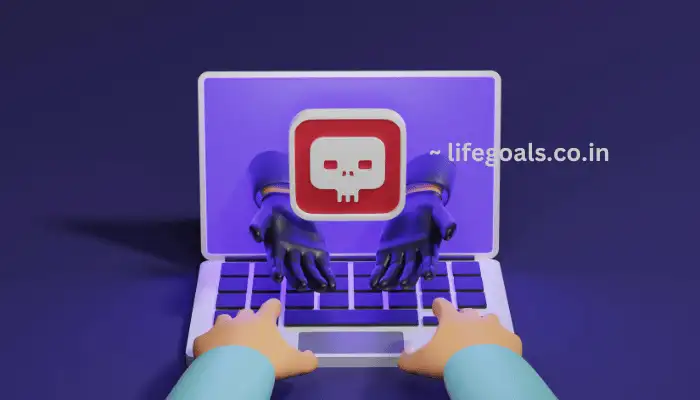What is the “Digital Arrest” Scam: A Comprehensive Guide to Recognizing and Avoiding Modern Fraud
A digitally-enabled online fraud named “Digital Arrest” is the new fad and it seems customers are still unaware about this. A twisted video call scam: The official’s forged video message to defraud money. This article examines what this scam involves, some recent high-profile cases and how to prevent it.
What is the Digital Arrest Scam?
Known as the “Digital Arrest” scam, this malicious act sees scammers disguising and impersonating themselves as officials from different organizations including governmental authorities to instill fear in innocent victims. Often, the scam initiates with a video call through which fake allegations are made against the innocent victim of doing crime, creating a fear factor and compelling the person to follow up with their monetary demand.

Common Strategies of Scams
Denial Accusations: The scammer accuses the victim of being involved in criminal acts such as drug trafficking or being a possessor of prohibited drugs.
Fake Emergencies: Con artists may say that a family member has been arrested or injured.
Requirement of Payment: The target will undoubtedly be requested to help make a deposit straight away to address the made-up dilemmas.
A few High profile cases recently
Case 1: Dr. Pooja Goel
A case in point is that of Noida-based prominent doctor, Dr. Pooja Goel. The scammers said she had used her phone number for distributing illicit content. When Dr. Goel realized that she had been cheated, Rs 60 lakh was already transferred.
Case 2: South Delhi
A 73-year-old from CR Park in south Delhi was duped of her life savings by some impostors posing as policemen, an ET report claimed. The impostors, in their typical manner, manufactured a fake story of facing a legal matter with an urgent need for it to be paid; and the woman ended up paying Rs 83 lakh.
How the Jail Video Digital Scam Works
The process of deceiving is as follows:
First contact: Victims receive a video call from scammers posing as authorities.
Instilling Fear: Scammers give the victim reason to believe they have broken a law, or their loved one is in trouble.
Payment Demanded: The victim is coerced into paying a substantial amount of money to ensure no further action, usually thanks to the belief that they are being watched through an ongoing video stream.
Tech They Use
Pretend Scams have sophisticated operations to make themselves look legitimate:
Fake Offices: Fake police stations or government offices designed to be fake studies
In Coats: Scammers put on official-looking coats so that they look real.
Latest Video Conferencing Soft – Platforms like Skype are used to make the arena beautifully attractive.
Current Reporting and Government Actions
Indian Warning And Guidelines To Recognize and Avoid “Digital Arrest” Scam
Key steps include:
Public Awareness: Alerts and info on how to report occurrences.
Reporting: All are advised to the cybercrime helpline number 1930 or visit www.cybercrime.gov.in.
Indian Cyber Crime Coordination Centre (I4C)
I4C under the Ministry of Home Affairs has been playing a vital role in taking on cybercrime:
Blocking Fraud Accounts: Over 1,000 Skype IDs associated with this scam have so far been blocked; organs/source regulated_FINANCIAL/Tech_ODD jobs.
Joint Activity: Co-operation with Microsoft to remove fake posts and block SIMs and mobile devices by swindlers.
Public Alerts: Use of platforms like Cyberdost to sensitize masses.
Why You Should Be Vigilant
Identifying Red Flags To Steer Clear of the “Digital Arrest” Scam:
Check Caller Identity: Confirm who’s calling, sounding?
Don’t pay instantly: Do not transfer money for calls or video requests since you did nothing wrong.
Ask For Help: Reach out to the local authorities or other reputable sources if you feel like someone is trying something illegal.
Immediate Report
With the proper reporting of cybercrime to law enforcement, future victimization and police work can be avoided.
Conclusion
The “Digital Arrest” fraud is an advanced type of cybercrime, and that implies taking safety measures to ensure its exploitation can fail. With these red flags and psychological techniques under your belt, you will be less susceptible to becoming the next victim. Keep yourself safe, identify scams and report anything unusual to help combat this scourge of the modern age.
FAQs
Q: What is the “Digital Arrest” scam?
A: The fraudster pretends to be officials from various agencies, blackmailing innocent people with video calls accusing them of illegitimate actions and demanding money.
Q: How Do I Spot a “Digital Arrest” Scam?
A: Unwelcome video calls from supposed officials, requests for immediate payment and threats of legal action. Never take any action without verifying the identity of the calling person.
Q: What if I get a spam phone call?
A: Never wire money or send your personal information. Confirm the Identity of the Caller and log a complaint with Local Police or CyberCrime Helpline.
Q: What steps is the government taking against the “Digital Arrest” scam?
A: The government has been issuing warnings, setting up reporting channels, and working with tech companies to flag fake accounts and spread the right information.
Q: What can I do to avoid being subjected to these hatemongers and phoney online scams?
A: Be wary of prevalent scams, always establish someone’s identity, and if in doubt talk to someone credible or authorities.


